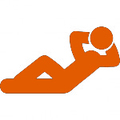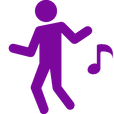Feelings and Emotions
How Feelings and Emotions Can Affect Pain
When you are living with a chronic pain, the last thing you want to be told is that pain is in your head, but in a sense that is true of all pain. When you have a toothache, stub your toe or burn your finger on the eye of a stove, you experience your pain not directly at the site of injury, but as the result of pain signals processed by your brain.
Our minds naturally interpret pain as unpleasant. That’s a good thing when pain is caused by an acute illness or injury – it alerts you that there is a problem and helps to ensure that you do something about it. But when pain becomes chronic, it is a problem in and of itself. You have received or are receiving treatment for the problem that led to the pain, but the pain persists.
Persistent pain can lead to fatigue, frustration and fear that can amplify your mind’s perception of the pain. Stress and anxiety can cause muscles to tense, which can cause pain itself or worsen pain. Worsened pain, in turn, can lead to more fatigue, frustration and fear. It’s a vicious cycle.
For this reason, learning to manage the stress associated with chronic pain can be an important part of your pain treatment plan.
Our minds naturally interpret pain as unpleasant. That’s a good thing when pain is caused by an acute illness or injury – it alerts you that there is a problem and helps to ensure that you do something about it. But when pain becomes chronic, it is a problem in and of itself. You have received or are receiving treatment for the problem that led to the pain, but the pain persists.
Persistent pain can lead to fatigue, frustration and fear that can amplify your mind’s perception of the pain. Stress and anxiety can cause muscles to tense, which can cause pain itself or worsen pain. Worsened pain, in turn, can lead to more fatigue, frustration and fear. It’s a vicious cycle.
For this reason, learning to manage the stress associated with chronic pain can be an important part of your pain treatment plan.
Practice relaxation exercisesTechniques such as progressive relaxation, guided imagery, biofeedback, self-hypnosis and deep breathing exercises all have a common goal: to put your body in a state of relaxation, with lowered blood pressure, slower breathing and a general feeling of well-being. You can learn relaxation exercises from a mental health professional, or by checking out this publication of the National Center for Complementary and Integrative Health (NCCIH).
Stay physically activePhysical activity is a great stress reliever. Take some time each day to do something active: take a walk, go for a swim, take a yoga class, practice gentle exercises in front of the TV, or work in your garden. The best activity for relieving stress is one you enjoy.
|
Get adequate sleepAny kind of stress is worse when you are short on sleep. If pain makes it difficult to sleep at night, speak with your doctor about the possibility of timing pain medicines to give you more relief at night, take a warm bath to relax and sooth sore joints before bedtime and use an electric blanket to keep them warm through the night, and try placing pillows to support painful joints. Read more about getting a good night’s sleep.
Get educatedFear of the unknown can be source of great anxiety. Not knowing the cause of your pain or fearing where or how it will appear next may make the sensation of pain even worse. While pain is never completely predicable, education about your condition can help you better understand it and may help alleviate some of your fears, which may make pain a little easier to manage.
|
Take time for activities you enjoyWhile you may not feel like doing anything you don’t absolutely have to when pain is flaring, making an effort to do something you enjoy – whether it is reading a suspenseful book, coloring, listening to music or taking a walk through the park – can be relaxing and distract your mind from the pain, if only a little bit.
See a professionalThere is no question about it: living with a chronic disease is stressful. A professional mental health therapist (counselor) can help you develop techniques, including relation techniques, to reduce stress, manage pain and live with your disease.
If depression or anxiety is interfering with your life and making it difficult to manage your disease, ask your doctor if you medication for anxiety or depression might help. In some cases, these medications also prescribed for pain relief. Your primary physician may prescribe these or refer you to a psychiatrist for an evaluation and medical treatment. Medication is often used along with counseling to treat depression and anxiety. |









